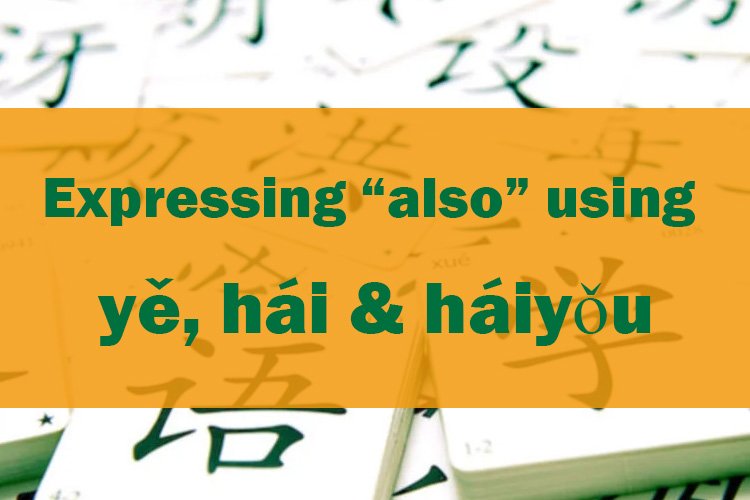Expressing “also” using yě, hái & háiyǒu
Yě & hái:
Similar with yě, hái is an adverb, which is placed after a subject or at the beginning of a second phrase or clause.
The difference/similarities between yě and hái:
You can use both hái and yě with ONE subject. Meaning ONE subject is sharing TWO facts.
When there are TWO subjects that are sharing the same fact, yě is the only option under this circumstance.
hái can convey the meaning of “still".
| hái / yě + verb/modal verb |
|
wǒ xiǎng qù zhōngguó, yě / hái xiǎng qù táiwān. ——> I want to go to China, also want to go to Taiwan. |
|
wǒ yǒu yī zhī gǒu, hái / yě yǒu yī zhī māo. ——> I have a dog, also have a cat. wǒ yǒu yī zhī gǒu. Tā yě yǒu yī zhī gǒu. ——> I have a dog. He also has a dog. |
háiyǒu:
Similar to hái & yě,háiyǒu is also used to express “and also” or it can be used to express “in addition to...”. We can use háiyǒu before the new clause or sentence.
| ….,háiyǒu,...… |
|
nǐ chī zǎofàn le ma?háiyǒu, nǐ shénme shíhou huì qù bàngōngshì?——> Did you eat breakfast? In addition to this, when will you go to office? |
|
shàngkè de shíhou, bùkěyǐ yòng shǒujī. háiyǒu, xiàkè yǐhòu, qǐng zuò zuòyè. ——> While in classes, (you) can’t use cellphone. In addition to this, after class, please do homework. 上课的时候,不可以用手机。还有,下课以后,请做作业。 |


